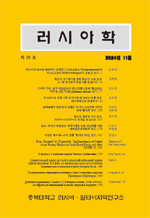이 연구는 러시아-우크라이나 전쟁을 통해 현대전에서 철도의 전략적 역할을 분석한다. 철도는 군사적 물자 수송과 경제적 활동 유지에 필수적인 자원으로, 전쟁의 승패를 좌우하는 중요한 요소로 작용한다. 본 연구는 정량적 데이터 분석과 정성적 사례 분석을 결합한 혼합 연구 방법론을 사용하였다. 이를 통해 철도의 군사적 및 경제적 영향을 평가하고, 크라마토르스크 기차역 폭격 사건과 크림 다리 폭발 사건을 심층적으로 고찰하였다. 기술 발전은 철도의 전략적 가치를 변화시켰으며, 고속철도와 자동화 시스템, 첨단 정보통신 기술의 도입으로 철도의 신속성과 효율성이 크게 향상되었다. 이러한 발전은 현대전에서 철도의 역할을 확장시키고 있다. 또한, 국제 협력의 중요성이 강조되며, 국가 간 철도 연결 및 표준화를 통해 철도의 전략적 가치를 높이는 방안이 필요하다. 연구 결과는 드론과 사이버 공격과 같은 새로운 위협에 대응하기 위한 기술 개발의 필요성을 제시하며, 국가 안보와 경제 정책 수립에 중요한 시사점을 제공한다. 지속 가능한 철도 시스템 구축을 위한 정책 제언과 함께, 향후 연구 방향으로는 철도 시스템의 복원력 강화와 효율성 향상을 위한 기술 연구가 제안된다. 이 연구는 철도가 현대전에서 핵심 인프라로서의 역할을 지속적으로 강화할 수 있도록 하는 데 기여할 것이다.
This study analyzes the strategic role of railroads in modern warfare through the Russia-Ukraine war. Railways are essential resources for transporting military goods and maintaining economic activity, and act as an important factor in determining the victory or defeat of war. This study used a mixed research methodology combining quantitative data analysis and qualitative case analysis. Through this, the military and economic impact of the railway was evaluated, and the bombing of the Kramatorsk railway station and the explosion of the Crimean Bridge were considered in depth. Technological advances have changed the strategic value of railroads, and the introduction of high-speed railways, automation systems, and advanced information and communication technologies has greatly improved the speed and efficiency of railroads. These developments are expanding the role of railroads in modern warfare. In addition, the importance of international cooperation is emphasized, and measures to increase the strategic value of railroads through railway connection and standardization between countries are needed. The findings suggest the need for technology development to counter emerging threats such as drones and cyberattacks, and provide important implications for national security and economic policy establishment. Along with policy suggestions for building a sustainable rail system, technical research is proposed to strengthen the resilience and improve efficiency of the rail system as a future research direction. This research will contribute to enabling railroads to continue to strengthen their role as key infrastructure in modern warfare.
Ⅰ. 서론
Ⅱ. 이론적 배경
Ⅲ. 러시아-우크라이나의 전쟁 개요
Ⅳ. 철도의 군사적 활용 분석
Ⅴ. 철도의 경제적 영향 평가
Ⅵ. 사례분석: 러시아-우크라이나 전쟁에서의 주요 철도관련 사건
Ⅶ. 비교분석 : 과거와 현대 전쟁에서의 철도 활용
Ⅷ. 결론 및 제언
참고문헌
